-
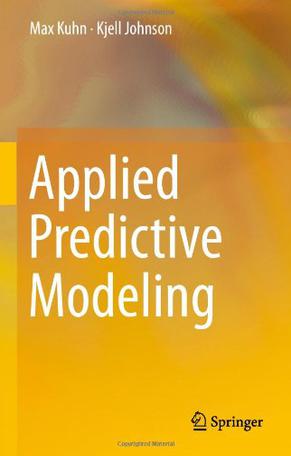
Applied Predictive Modeling
This text is intended for a broad audience as both an introduction to predictive models as well as a guide to applying them. Non-mathematical readers will appreciate the intuitive explanations of the techniques while an emphasis on problem-solving with real data across a wide variety of applications will aid practitioners who wish to extend their expertise. Readers should have knowledge of basic statistical ideas, such as correlation and linear regression analysis. While the text is biased against complex equations, a mathematical background is needed for advanced topics. Dr. Kuhn is a Director of Non-Clinical Statistics at Pfizer Global R&D in Groton Connecticut. He has been applying predictive models in the pharmaceutical and diagnostic industries for over 15 years and is the author of a number of R packages. Dr. Johnson has more than a decade of statistical consulting and predictive modeling experience in pharmaceutical research and development. He is a co-founder of Arbor Analytics, a firm specializing in predictive modeling and is a former Director of Statistics at Pfizer Global R&D. His scholarly work centers on the application and development of statistical methodology and learning algorithms. -
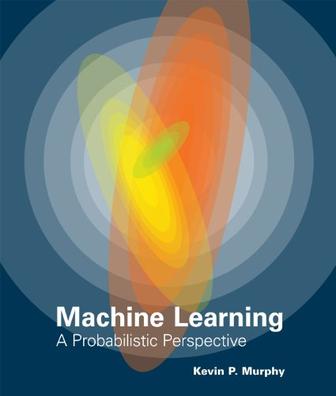
Machine Learning
Today's Web-enabled deluge of electronic data calls for automated methods of data analysis. Machine learning provides these, developing methods that can automatically detect patterns in data and then use the uncovered patterns to predict future data. This textbook offers a comprehensive and self-contained introduction to the field of machine learning, a unified, probabilistic approach. The coverage combines breadth and depth, offering necessary background material on such topics as probability, optimization, and linear algebra as well as discussion of recent developments in the field, including conditional random fields, L1 regularization, and deep learning. The book is written in an informal, accessible style, complete with pseudo-code for the most important algorithms. All topics are copiously illustrated with color images and worked examples drawn from such application domains as biology, text processing, computer vision, and robotics. Rather than providing a cookbook of different heuristic methods, the book stresses a principled model-based approach, often using the language of graphical models to specify models in a concise and intuitive way. Almost all the models described have been implemented in a MATLAB software package--PMTK (probabilistic modeling toolkit)--that is freely available online. The book is suitable for upper-level undergraduates with an introductory-level college math background and beginning graduate students. -
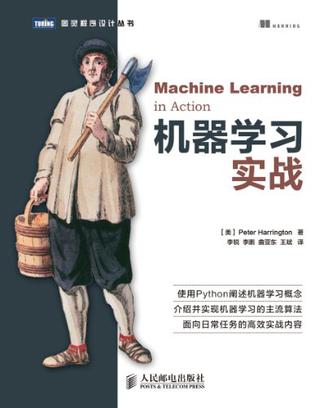
机器学习实战
机器学习是人工智能研究领域中一个极其重要的研究方向,在现今的大数据时代背景下,捕获数据并从中萃取有价值的信息或模式,成为各行业求生存、谋发展的决定性手段,这使得这一过去为分析师和数学家所专属的研究领域越来越为人们所瞩目。 本书第一部分主要介绍机器学习基础,以及如何利用算法进行分类,并逐步介绍了多种经典的监督学习算法,如k近邻算法、朴素贝叶斯算法、Logistic回归算法、支持向量机、AdaBoost集成方法、基于树的回归算法和分类回归树(CART)算法等。第三部分则重点介绍无监督学习及其一些主要算法:k均值聚类算法、Apriori算法、FP-Growth算法。第四部分介绍了机器学习算法的一些附属工具。 全书通过精心编排的实例,切入日常工作任务,摒弃学术化语言,利用高效的可复用Python代码来阐释如何处理统计数据,进行数据分析及可视化。通过各种实例,读者可从中学会机器学习的核心算法,并能将其运用于一些策略性任务中,如分类、预测、推荐。另外,还可用它们来实现一些更高级的功能,如汇总和简化等。 -
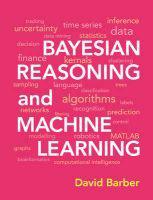
Bayesian Reasoning and Machine Learning
Machine learning methods extract value from vast data sets quickly and with modest resources. They are established tools in a wide range of industrial applications, including search engines, DNA sequencing, stock market analysis, and robot locomotion, and their use is spreading rapidly. People who know the methods have their choice of rewarding jobs. This hands-on text opens these opportunities to computer science students with modest mathematical backgrounds. It is designed for final-year undergraduates and master's students with limited background in linear algebra and calculus. Comprehensive and coherent, it develops everything from basic reasoning to advanced techniques within the framework of graphical models. Students learn more than a menu of techniques, they develop analytical and problem-solving skills that equip them for the real world. Numerous examples and exercises, both computer based and theoretical, are included in every chapter. Resources for students and instructors, including a MATLAB toolbox, are available online. -
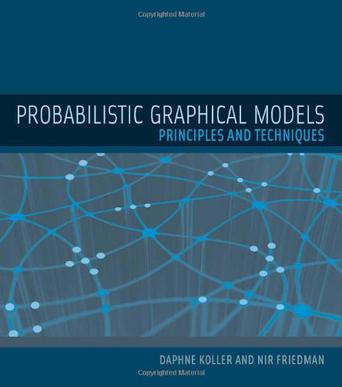
Probabilistic Graphical Models
Most tasks require a person or an automated system to reason--to reach conclusions based on available information. The framework of probabilistic graphical models, presented in this book, provides a general approach for this task. The approach is model-based, allowing interpretable models to be constructed and then manipulated by reasoning algorithms. These models can also be learned automatically from data, allowing the approach to be used in cases where manually constructing a model is difficult or even impossible. Because uncertainty is an inescapable aspect of most real-world applications, the book focuses on probabilistic models, which make the uncertainty explicit and provide models that are more faithful to reality. Probabilistic Graphical Models discusses a variety of models, spanning Bayesian networks, undirected Markov networks, discrete and continuous models, and extensions to deal with dynamical systems and relational data. For each class of models, the text describes the three fundamental cornerstones: representation, inference, and learning, presenting both basic concepts and advanced techniques. Finally, the book considers the use of the proposed framework for causal reasoning and decision making under uncertainty. The main text in each chapter provides the detailed technical development of the key ideas. Most chapters also include boxes with additional material: skill boxes, which describe techniques; case study boxes, which discuss empirical cases related to the approach described in the text, including applications in computer vision, robotics, natural language understanding, and computational biology; and concept boxes, which present significant concepts drawn from the material in the chapter. Instructors (and readers) can group chapters in various combinations, from core topics to more technically advanced material, to suit their particular needs. -
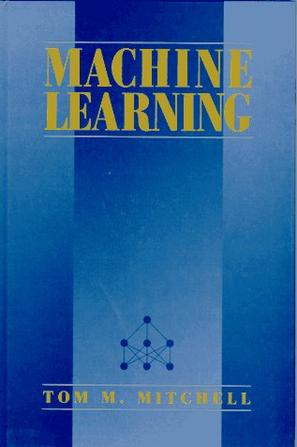
Machine Learning
This book covers the field of machine learning, which is the study of algorithms that allow computer programs to automatically improve through experience. The book is intended to support upper level undergraduate and introductory level graduate courses in machine learning.